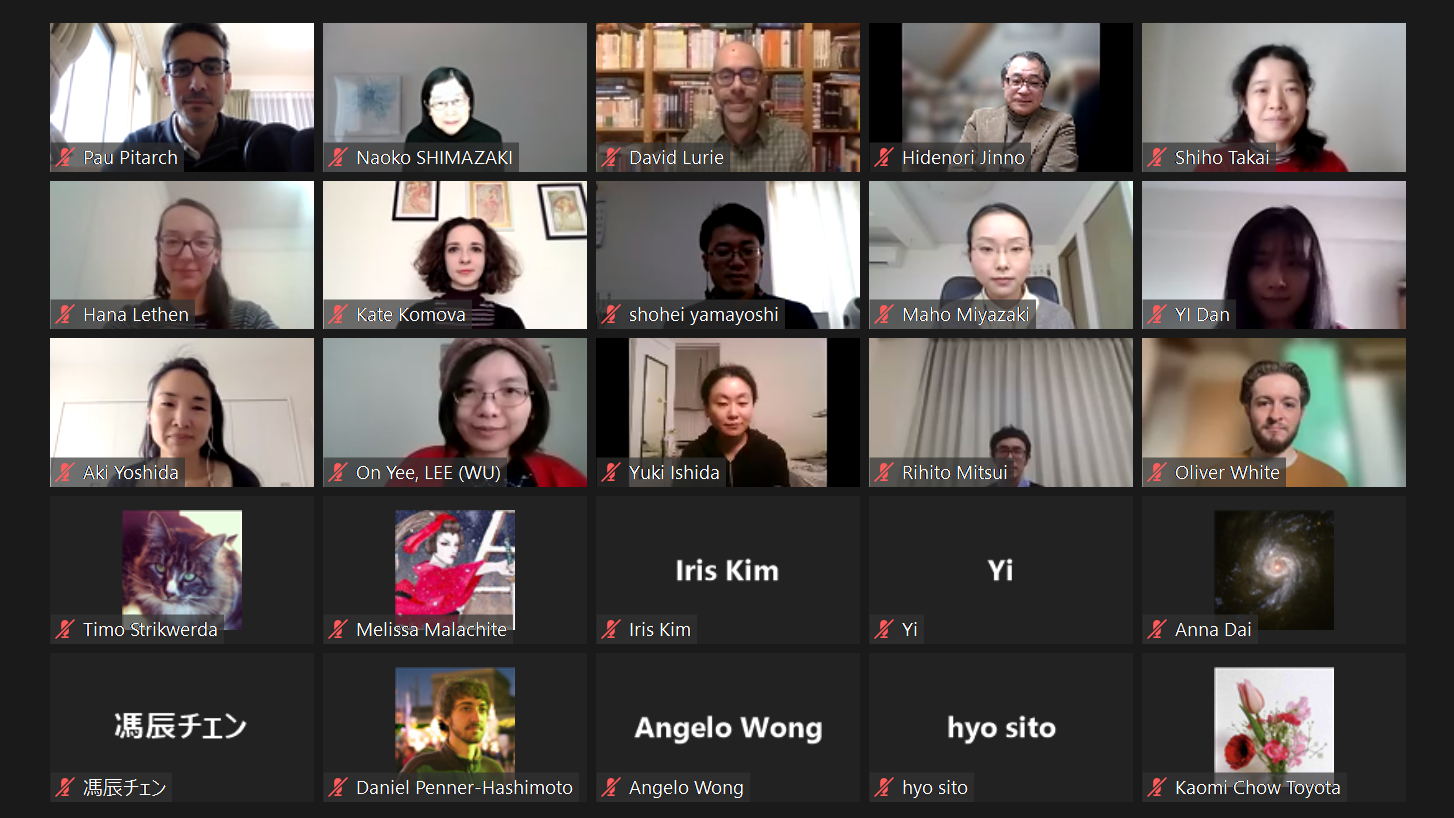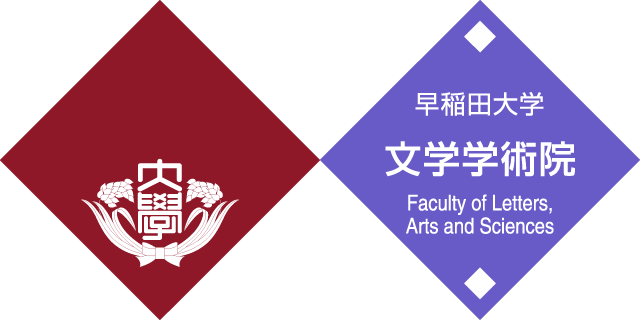- News
- Event Report: Waseda-Columbia International Workshop 2022: Future Directions in Japanese Literary, Cultural, and Media Studies
Event Report: Waseda-Columbia International Workshop 2022: Future Directions in Japanese Literary, Cultural, and Media Studies

- Posted
- Fri, 04 Mar 2022
On January 28-29, 2022, the “Waseda-Columbia International Workshop 2022: Future Directions in Japanese Literary, Cultural, and Media Studies” was held online (Zoom). This workshop was organized as part of the ongoing effort to foster the next generation of researchers in collaboration with the Top Global University Project: Global Japanese Studies and Columbia University’s Department of East Asian Language and Cultures. In this workshop, graduate students from both schools, currently working on their doctoral dissertations in Japanese literature and culture, gave presentations on their research and doctoral dissertation topics, and faculty members from both universities served as discussants, providing comments on the presentations. The goal of the workshop was not only to create an opportunity for joint guidance by the faculty members of the two schools, but also to explore the future of Japanese literature and culture research through discussions among the graduate students and faculty members.
On the first day of the workshop, co-organizer Kimiko Kono (Waseda University) gave the opening remarks and explained the purpose of the workshop. In panel 1: TRANSLATION, ADAPTATION, SPACE-TIME OF READING AND (RE)WRITING, Oliver White (CU), Yuki Ishida (CU), Rihito Mitsui (WU), and Lee On Yee (WU) gave presentations on Tōkaidōchū Hizakurige, Futabatei Shimei, Tanizaki Jun’ichirō, and Dazai Osamu respectively, focusing on revisions, translations, and reception.
In panel 2: DEATH, AGING, RECLAIMING THE BODY; TRANSMISSION AND GENEALOGY, Ekaterina Komova (CU), Maho Miyazaki (CU), Shohei Yamayoshi (WU), and Dan Yi (WU) gave presentations on death and aging, the body and illness, legends, and folklore respectively, focusing on The Tale of Genji, Noh, apocrypha, and the legend of the human face tumor. After comments from the discussants, Professor Tomi Suzuki of Columbia University gave the closing remarks of the first day, reviewing the history of joint research and educational projects between the two universities over the years, and stating that the results had been substantial.

On the second day, in panel 3: REMAPPING THE LITERARY FIELD IN MODERN JAPAN, Stephen Choi (CU), Yauheniya Hudziyeva (WU), Erika Ohki (WU), and Gen Kinoshita (WU) gave presentations on children’s literature, proletarian literature, Tanizaki Jun’ichirō, and Irokawa Takehiro respectively, reconsidering the function and significance of literature and literary history. In the last session, panel 4: VISIONS OF NEW ENCOUNTERS: REPRESENTATION AND LURE OF THE REAL, Xinyi Zhao (CU), Sena Kaneko (WU), and Deanna T. Nardy (CU) gave presentations on issues such as realism, representation, and the contextualization of translation, focusing on cultural cinema in Manchuria, the Philippines in the works of Ooka Shōhei, and black literature, respectively. As on the first day, the discussants made comments on each presentation. Professor Hirokazu Toeda of Waseda University expressed his hope that such opportunities for graduate students from both schools would lead to further advancement in their research. Professor Haruo Shirane of Columbia University summarized the workshop by saying that the graduate students of both schools were challenging themselves to explore new fields, and that the participating graduate students and faculty members had stimulated each other.


In this workshop, the time for each person’s presentation and for comments by the discussants was set for concentrated discussion. Abstracts were prepared in both Japanese and English and shared beforehand, and both Japanese and English were freely used for presentations and comments to ensure rapid exchange. In addition, the discussants read the papers carefully in advance and commented on them, resulting in substantive and constructive advice and meaningful exchange. Although the conference was held online, the presenters were able to complement their presentations with PowerPoint and demonstrated excellent presentational skills.
Top Global University Project: Global Japanese Studies and Columbia University’s Department of East Asian Language and Cultures have held a series of joint workshops and symposia over the past 15 years, and have also published a collection of papers and other results, including bilingual publications. In addition, the two schools have also held a number of student-participatory events, including open-class lectures. About 30 graduate students and faculty members from both schools participated in the workshop, with 15 graduate students from both schools as presenters and 14 faculty members as discussants. This was made possible by the meticulous planning of Professors Haruo Shirane and Tomi Suzuki of Columbia University, despite the extremely inconvenient restrictions on international academic exchange due to the novel coronavirus infection. Through the two days of presentations and discussions, the direction of future research and issues to be tackled emerged one after another, just as the title of the workshop suggests.
Event Overview
Please click here for the event’s schedule and program.
- Tags
- Event Reports
